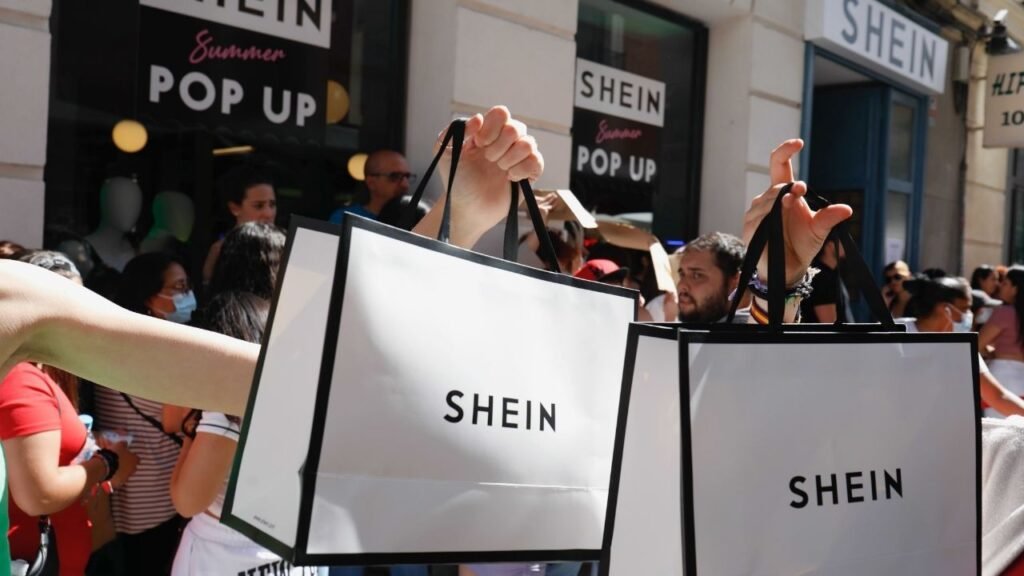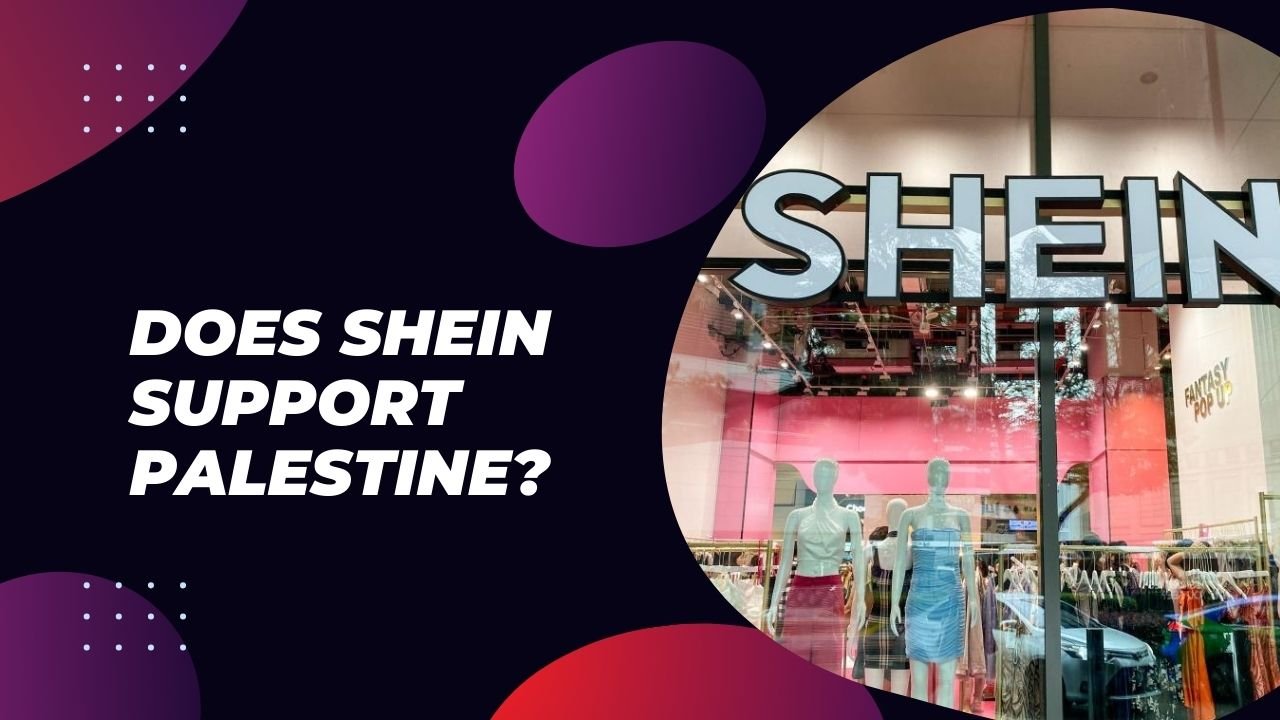Does Shein Support Palestine? Shein supports Palestine by selling Palestinian flags and related items, while stopping the sale of Israeli flags, leading to criticism and calls for boycotts from Israeli consumers.
In today’s interconnected world, the actions and decisions of companies are increasingly under public scrutiny.
Shein, a global fast-fashion retailer, has recently become a focal point of political discussions due to its perceived support for Palestine.
This article explores Shein’s stance, examining the key factors that have led to the belief that the company supports Palestine.
We will delve into Shein’s history, the controversial actions it has taken, and the public’s reaction to these moves.
Contents
What Is Shein?
Shein is a Chinese-based online retail platform that has gained immense popularity worldwide for its affordable and trendy clothing.
Founded in 2008, the company initially focused on women’s fashion but has since expanded to include men’s clothing, accessories, shoes, bags, and other lifestyle products.
Shein’s business model relies heavily on social media marketing, influencer partnerships, and a vast inventory that caters to fast-changing fashion trends.
The brand’s appeal lies in its ability to offer the latest fashion at low prices, which has made it particularly popular among younger consumers.
Shein’s rapid growth can be attributed to its efficient supply chain, which allows it to quickly produce and ship new items.
However, this business model has also drawn criticism for its environmental impact and labor practices.

Does Shein Support Palestine?
The question of whether Shein supports Palestine has been a subject of intense debate.
Several actions by the company suggest a sympathetic stance towards the Palestinian cause. Here are five key factors that contribute to this perception:
1. Sale of Palestinian Flags
One of the most visible actions Shein has taken is the sale of Palestinian flags and related merchandise on its platform.
The availability of these items can be seen as a gesture of solidarity with Palestine. In contrast, searches for Israeli flags on the site returned no results, leading to accusations of bias.
The sale of Palestinian flags and accessories, especially during times of heightened conflict, sends a strong message.
It indicates that Shein is willing to cater to and support the sentiments of consumers who sympathize with the Palestinian cause.
This move has been praised by some as an expression of support for Palestinian rights and identity.
2. Suspension of Israeli Flag Sales
In line with its support for Palestine, Shein decided to suspend the sale of Israeli flags. This action has been interpreted as a political statement, suggesting that the company does not want to be seen as supporting Israel.
The decision to prioritize Palestinian symbols over Israeli ones has sparked controversy and debate. [Does Shein Support Palestine?]
The suspension of Israeli flag sales was likely influenced by consumer feedback and the broader political climate.
It reflects a conscious choice by Shein to align its product offerings with a particular political narrative.
While this has garnered support from pro-Palestinian consumers, it has also led to backlash from pro-Israel groups and individuals.
3. Termination of Partnerships with Israeli Influencers
Shein’s decision to end its partnerships with Israeli influencers is another significant factor in the perception of the company’s support for Palestine.
This move followed criticism over Shein’s product offerings and was seen as a response to the growing calls for boycotts from Israeli consumers.
By terminating these partnerships, Shein effectively distanced itself from the Israeli market. [Does Shein Support Palestine?]
The company communicated this decision through emails to the influencers, asking them to refrain from promoting Shein products. This action further solidified the belief that Shein is taking a stand in favor of Palestine.
The termination of these partnerships had immediate and long-term implications. In the short term, it disrupted Shein’s marketing strategies in Israel.
In the long term, it signaled to consumers and the public that Shein is willing to make significant business sacrifices to align with its perceived political stance.
4. Cancellation of Free Deliveries to Israel
In addition to ending influencer partnerships, Shein also canceled free deliveries to Israel.
This policy change was seen as another step in the company’s support for Palestine and its attempt to distance itself from Israeli markets.
The cancellation of free shipping was noted by many Israeli consumers who had previously benefited from this service.
The decision to cancel free deliveries can be viewed as a strategic move to minimize Shein’s engagement with the Israeli market.
It also serves as a signal to pro-Palestinian consumers that the company is willing to take tangible steps to support their cause.
This action, while significant, also contributed to the growing calls for boycotts from Israeli consumers. [Does Shein Support Palestine?]

5. Silent Endorsement through Product Offerings
Beyond flags, Shein has continued to offer products that incorporate Palestinian colors and symbols.
This ongoing inclusion of Palestinian-themed items has been interpreted as a silent yet powerful endorsement of the Palestinian cause.
The brand’s decision not to remove these items, despite backlash, underscores its commitment to this stance.
The presence of Palestinian-themed products on Shein’s platform reflects a broader trend of brands using their product offerings to make political statements.
In Shein’s case, the continued availability of these items serves as a subtle yet clear message of support for Palestine. This approach allows the company to maintain its stance without making explicit political statements.
See Also: Does Target Support Palestine? Examining the Facts!
FAQs
Q: Why did Shein stop selling Israeli flags?
A: Shein stopped selling Israeli flags in response to political and consumer pressures, aligning its product offerings more closely with the Palestinian cause.
Q: Has Shein made an official statement regarding its stance?
A: Shein has largely remained silent on its official stance, allowing its actions, such as product offerings and policy changes, to speak for themselves.
Q: How have consumers reacted to Shein’s actions?
A: Reactions have been mixed, with some consumers supporting Shein’s perceived stance on Palestine, while others, particularly in Israel, have called for boycotts of the brand.
Q: Are there other brands that have taken similar stances?
A: Yes, several brands have taken political stances in response to global events, though the degree and nature of their actions vary widely.
Q: Will Shein’s actions affect its global popularity?
A: It’s uncertain, but the brand’s bold actions have undoubtedly sparked debate and may influence consumer behavior based on individual political views.
Conclusion: Does Shein Support Palestine?
Shein’s actions, from selling Palestinian flags to ending partnerships with Israeli influencers, have positioned the brand as a supporter of Palestine in the eyes of many.
While the company has not issued explicit statements, its decisions and product offerings suggest a clear stance.
This situation highlights the complex interplay between commerce and politics in the modern world, where brands are often expected to take positions on global issues.
As Shein navigates this landscape, its reputation and customer base may be significantly shaped by these bold moves.
The controversy surrounding Shein’s perceived support for Palestine illustrates the broader challenges that companies face when their business decisions intersect with political issues.
For Shein, the implications of these actions will continue to unfold, influencing consumer perceptions and potentially reshaping the brand’s identity in the global market.

Hi, I am Jackson Barton, a blogger who loves to share the latest news about the world. I cover big topics like the Israel-Palestine issue and news about Biden and Trump. Many people, like me, want to know whom famous people and brands support on these issues. That’s why I started my blog, to share important news and information with others who are also curious and eager to learn.

